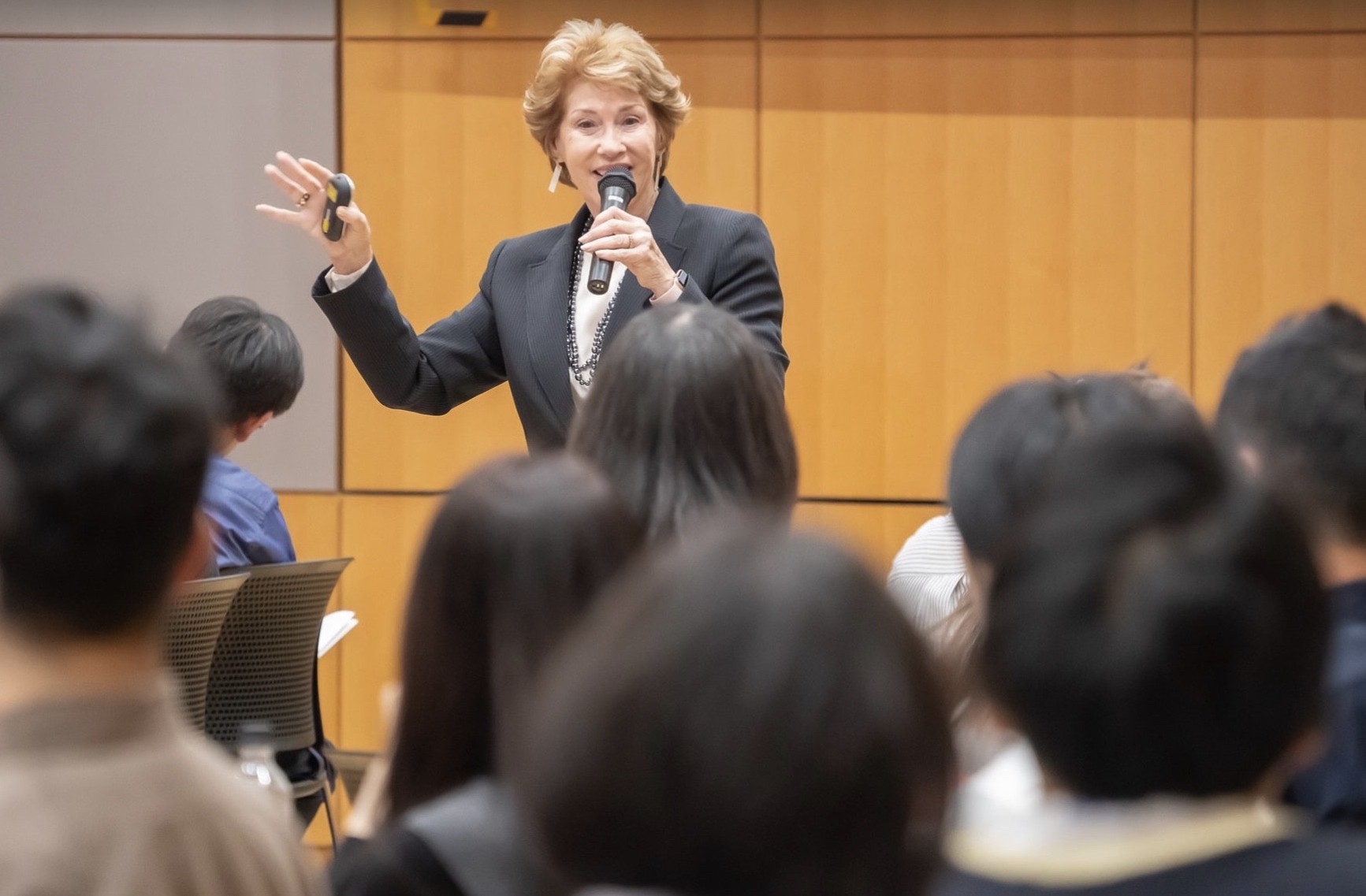Leadership the Central Topic of Upcoming Lakeland Lecture
On Thursday, February 20, at 7pm, we hope you can join us here at Muskie Hall for our next Lakeland Lecture with Executive Coach Ginger Griggs. Ms. Griggs will be giving a lecture entitled "Great Leadership: What Is It, and How Do I Get There?" As always, the lecture is free and open to the public. See the poster below for more details.
Thankfully for us, Ms. Griggs took time out of her busy schedule to answer a few questions below.
It's clear from the poster bio that you've held a variety of leadership roles in your incredible career. You're a co-founder, a president, and have also worked in upper management for companies as large as Coca-Cola. Most of whom you'll be speaking to here will be undergraduate students looking to become leaders. When you were a student, what experiences did you have that prepared you for your business career?
I studied hard in school and excelled in my classwork, but other than that, I was a “late bloomer” when it came to engaging in the kinds of experiences that prepared me for my business career—or to have a great life, for that matter. As a young person, although I was liked and respected by those who knew me, underneath my outgoing personality I was overly concerned about what people would think of me if I failed at something. When you have that kind of mindset, you’re only likely to pursue things in which you already have strengths, and you seldom publicly “put your name in the ring” to compete for positions like class president or a leading role in a performance. (What would people think of you if you lost?)
With that kind of outlook, you let so many opportunities pass you by! You don’t grow and you don’t build your confidence or your resilience. You eventually become “a big fish in a very small pond." It was only after working for some years that I finally realized that if I didn’t become more courageous, all I would ever have in life was the safety of that very small pond. That recognition galvanized me into taking my first real steps totally outside of my comfort zone into the unknown.
My message to students is, don’t wait to do things that scare you. Challenge yourself daily. If what you’re doing doesn’t make you feel at least slightly nervous, you’re not growing. You have too much potential to let a full, exciting life pass you by!
Students often hear in books and business classes about two management styles: Hierarchical and Egalitarian. Is one better than the other, or does it depend on the company's culture?
For most situations, I recommend a hybrid management style that combines some elements of both hierarchy and egalitarianism. For a small startup composed of equally qualified leaders with high trust in each other, an egalitarian approach might work well. But as the organization grows and more people come on board, getting the entire team together to discuss all the opportunities, issues and decisions becomes unwieldy. That’s when a well-constructed hierarchy becomes a necessity. Key elements to success then become good communication across all levels, a culture that promotes and rewards collaboration, and a chart of authority that allows for enough autonomy at each level, so that individuals are motivated and empowered to do their best.
What are some common mistakes leaders make when running a company (or government)? And are there ways to overcome those mistakes?
Many articles, books and research reports have been written on this topic, but to mention just a few common mistakes:
A) Many leaders fail to listen to their team. Instead, they need to create an environment where people feel encouraged (and safe) to share their ideas, to provide feedback, and to tell the leader things he/she may not want to hear.
B) When it comes to strategic direction, leaders often overestimate the understanding and buy-in across their organization. The design and execution of the communication strategy deserves as much mental energy as the planning and execution of the tasks to achieve the strategic goal.
C) Foreign leaders often mistake the Japanese person who speaks the best English for the one who has the most valuable input/knowledge. They should take the time to observe interactions and build trusted relationships, even if it’s through translators or translation devices.
D) Newer leaders, particularly those who have been promoted based on their proficiency in a particular technical or specialized skill, can sometimes find it difficult to let go of that level of detail. Instead, they should focus on developing the skills they need in order to bring out the best in their teams.
---
For any questions about Lakeland Lectures, contact LUJ's director of the series, Roger Grabowski, at grabowski@japan.lakeland.edu
Follow LUJ on Instagram
